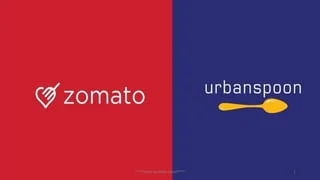In the rapidly evolving Indian startup ecosystem, acquisitions have often been a high-stakes gamble for growth, market expansion, and strategic positioning. However, not all acquisitions go as planned. This case study explores three of the most high-profile acquisition failures in Indian startup history: Snapdeal’s acquisition of FreeCharge, Byju’s acquisition of WhiteHat Jr., and Zomato’s acquisition of Urbanspoon. Each case provides lessons in operations, finance, brand management, and market strategy.
1. Snapdeal’s Acquisition of FreeCharge (2015)
Background
In 2015, Snapdeal, then India’s second-largest e-commerce platform, acquired FreeCharge for $400 million. At that time, FreeCharge was a leading online payment platform, and Snapdeal envisioned it as a key asset to drive growth, increase mobile engagement, and compete against Paytm in the digital payment space.
Key Strategic Lessons
1.1 Market Fit & Demographics
- Miscalculation in Cross-Selling Potential: Snapdeal misjudged the demographic overlap between its primary customers (working professionals aged 25-35) and FreeCharge’s user base (college students aged 18-25). The expected synergy in cross-selling e-commerce products to FreeCharge’s users never materialized.
- Lesson: Understanding the demographic compatibility between the acquiring company and its target is critical, especially in consumer-facing businesses.
1.2 Financial Strain & Cash Burn
- Operational Inefficiency: FreeCharge’s reliance on cashback and heavy incentives meant that it was a “leaky bucket,” requiring continuous funding to maintain user engagement. This added financial strain on Snapdeal.
- Lesson: When acquiring a cash-intensive business, it’s vital to factor in long-term costs of maintaining user engagement.
1.3 Funding Crisis
- Lack of Resilience in Financial Strategy: Snapdeal’s expansive acquisition strategy and high cash burn led it to a financial crunch during the funding winter of 2016. The inability to secure funding resulted in Snapdeal’s valuation plummeting and the eventual sale of FreeCharge to Axis Bank at a loss of 85%.
- Lesson: Over-reliance on external funding is a risk; companies should ensure that their acquisition strategy aligns with sustainable cash flow.

2. Byju’s Acquisition of WhiteHat Jr. (2020)
Background
In 2020, Byju’s acquired WhiteHat Jr., a two-year-old edtech startup specializing in coding education for children, for $300 million. Byju’s aimed to use WhiteHat Jr. as a springboard for its global expansion, particularly in the United States.
Key Strategic Lessons
2.1 Brand Management and Public Perception
- Controversial Marketing Practices: WhiteHat Jr.’s aggressive and misleading marketing tactics, such as claims of “job offers at Google” for students, triggered backlash. The negative publicity tarnished Byju’s reputation and led to increased regulatory scrutiny.
- Lesson: Acquiring companies should ensure that the target’s brand values align with their own to avoid damaging their reputation.
2.2 Operational Scalability
- Costly One-on-One Model: WhiteHat Jr.’s one-on-one teaching model made scaling challenging and costly. This led to unsustainable growth with high customer acquisition costs and spiraling operational expenses.
- Lesson: Assessing the scalability of the target company’s operational model is crucial. High-growth expectations with limited scalability can lead to steep losses.
2.3 Misreading Market Trends
- Post-Pandemic Demand Shift: Byju’s acquisition was based on the assumption that demand for online education would continue to grow post-pandemic. However, as normalcy returned, the edtech sector faced slowing growth, and WhiteHat Jr.’s model quickly became a liability.
- Lesson: Short-term market shifts, like those caused by the pandemic, should not be used as the basis for long-term investment strategies.

3. Zomato’s Acquisition of Urbanspoon (2015)
Background
In an ambitious bid to establish a footprint in Western markets, Zomato acquired Urbanspoon, a popular restaurant listing platform in the US, for $50 million. Zomato planned to leverage this acquisition to compete with Yelp and dominate the restaurant discovery space internationally.
Key Strategic Lessons
3.1 Focus on Core Competency vs. Diversification
- Failure to Adapt to Food Delivery Market: While Zomato was focused on global expansion in the restaurant listing space, Swiggy emerged as a competitor in India by offering food delivery, a service Zomato initially overlooked. This misstep led to Swiggy capturing significant market share, pushing Zomato to pivot and add delivery services, which proved challenging.
- Lesson: Before pursuing aggressive international growth, companies should ensure a strong hold and innovation in their core market.
3.2 Resource Allocation & Cultural Fit
- Attrition and Cultural Disconnect: The acquisition faced difficulties in integrating Urbanspoon’s team, resulting in high attrition and a lack of cultural alignment. This led to a talent drain and hampered Zomato’s US operations.
- Lesson: When expanding internationally, a cultural fit between teams is essential for successful integration and sustained growth.
3.3 Operational Costs and Market Timing
- Cost Overrun in an Unfamiliar Market: The Urbanspoon acquisition depleted Zomato’s cash reserves significantly, which became a burden when they had to compete aggressively with Swiggy back in India.
- Lesson: Market timing and assessing the financial readiness for expansion play crucial roles in international acquisitions, especially in highly competitive industries.

Comparative Insights and Key Takeaways
4.1 Risk Management
Each acquisition suffered from inadequate risk assessment and over-optimistic assumptions:
- Snapdeal underestimated FreeCharge’s financial drain.
- Byju’s failed to foresee the end of the edtech boom post-pandemic.
- Zomato overlooked the competitive threat from Swiggy while focusing on international markets.
4.2 Financial Prudence
All three acquisitions demonstrate the importance of financial discipline and caution during periods of high capital availability. Over-expansion and failure to prioritize cash flow ultimately derailed these ambitious plans.
4.3 Market Understanding and Brand Alignment
A deep understanding of the target market and a strong alignment in brand values are critical for the success of an acquisition. Misjudging these elements led to brand dilution, as seen with Byju’s and WhiteHat Jr., and operational inefficiencies for Snapdeal and Zomato.
Conclusion
The stories of Snapdeal, Byju’s, and Zomato provide invaluable lessons on the risks associated with high-profile acquisitions. Strategic miscalculations in market fit, brand alignment, scalability, and financial readiness contributed to their failure. For future entrepreneurs and business leaders, these cases underscore the importance of comprehensive due diligence, an adaptable growth strategy, and prudent financial planning when considering an acquisition.
Leave a Reply